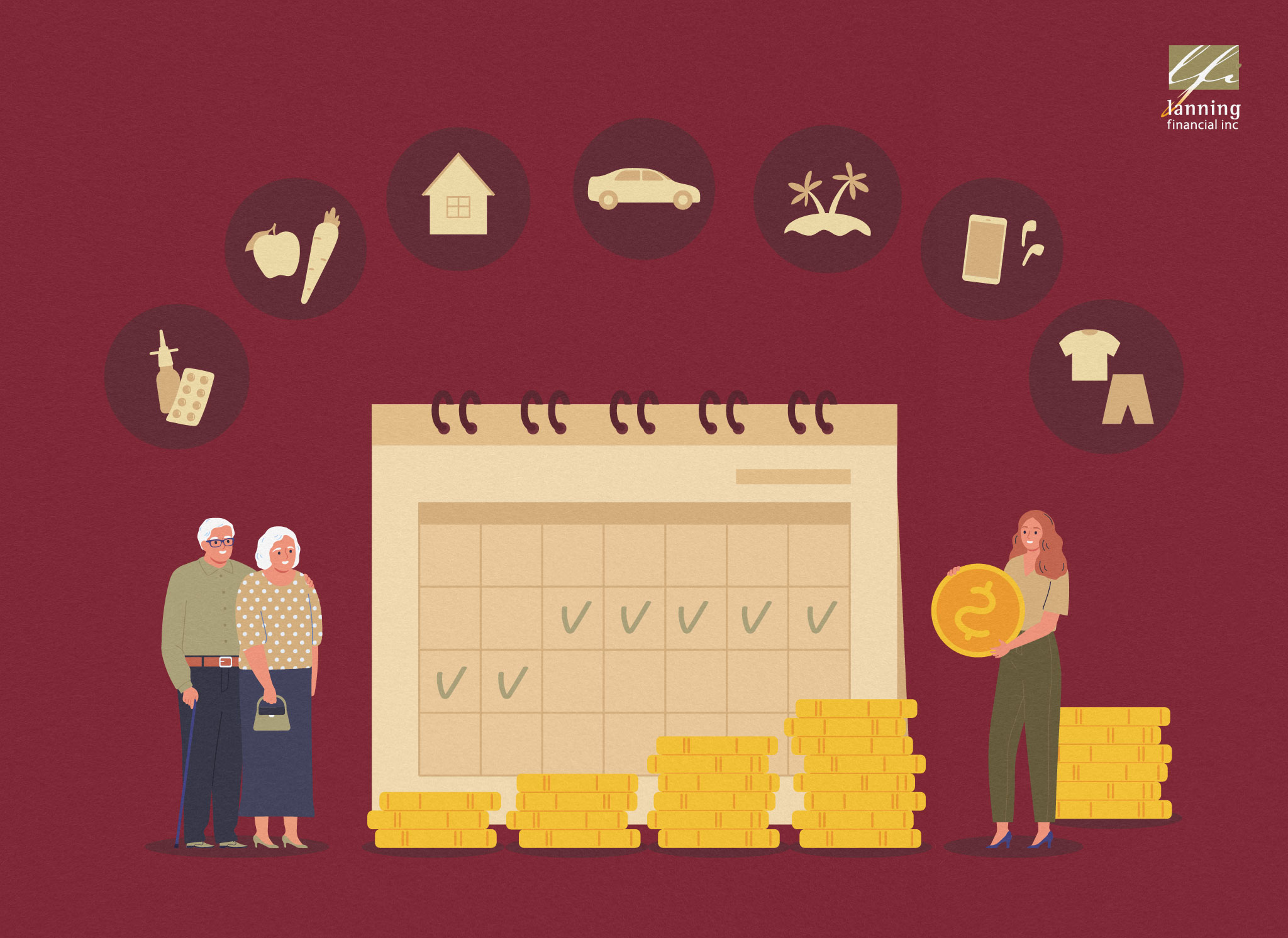To paraphrase Benjamin Franklin, there are two things in life that are certain – death and taxes. While we haven’t figured out how to avoid death, what if we could avoid or defer taxes?
When you die, your loved ones get to deal with the IRS on your behalf. But there are some strategies you can implement while alive to minimize the impact of that tax bill. With any luck, your family will be thanking you from the beyond.
How the estate tax works
This is a bit of an oversimplification, but when you die, your heirs will add up your assets, pay off your debts, and the remaining assets would be subject to an estate tax.
In recent history, Congress has created an “exemption” amount that is not subject to the estate tax. Everything over and above that amount is. For example, if you died in 2002, your estate could shelter $1M from estate taxes. If you had a $5M estate, $4M of it would be subject to tax.
The estate tax, relatively speaking, is steep: Assets over the exemption are taxed at a 40% tax rate. At various points historically, it’s been as high as 50%.
In 2023, the estate tax exemption will be almost $13M for an individual and almost $26M for a married couple. For the last several years, the vast majority of Americans have not had estates exceeding those amounts, rendering the conversation about estate tax planning short.
But do not overlook that part about the estate tax exemption retroactively going to $5.6M in a few short years, and nothing stops Congress from lowering the exemption to $0.
While the revenue generated from the estate tax comprises only about 1% of the US budget, it’s also one of the easiest to collect. The federal government will not hesitate to find its share. Death or inheritance taxes vary from state to state.
The big takeaway: Estate tax planning still matters!
No, you can’t just give it all away.
People immediately solve this estate tax problem by thinking “I’ll just give it away in my lifetime, so that at death there will be nothing to tax!” Nice try.
Sorry, you’re not the first person to think that, and Congress got out ahead of you. The estate and gift tax are often considered together, are subject to the same rate and share the same lifetime exemption amount.
The gift tax applies during transfers made during one’s lifetime and the estate tax applies during transfers made after death.
Working with your estate planning attorney to get the legal pieces handled in conjunction with your estate (financial) planner to get the financial pieces handled is key to making the right transfers at the right time.
Why bother minimizing estate taxes?
You don’t have to minimize estate taxes. You can simply let your heirs deal with it. You wouldn’t be the first to do so.
Most people who have to plan around estate taxes often find themselves with this one big issue: There won’t be enough cash in the estate to pay the estate tax bill and something (usually some piece of property) will have to be sold. For instance:
Family businesses. Businesses have value. That value gets added to the estate. If there’s no cash to meet an estate tax obligation, the business might have to be sold or its cash flow hamstrung to pay the estate tax bill.
Properties with sentimental value. Families often own property in which family memories have been made – maybe a ski lodge or a beach house. The heirs may be very attached to keeping that property in the family for years to come. They would be heartbroken to have to sell the property to meet an estate tax obligation.
Property rich and cash poor estates. Related to both of the above, estates that are real property rich and cash poor are in a particularly difficult position to satisfy an estate tax bill, particularly if the real estate market is in slump. Not only might heirs have to sell a much-wanted property to meet a tax bill, they may not get enough in the sale to cover the bill, causing them to have to sell even more property.
Possible solutions.
- Find and work with all exemptions and deductions. Make sure your tax, legal and financial professionals are anticipating future tax law changes on the federal and state levels to maximize your heirs’ opportunities to minimize taxes.
- Give gifts during your lifetime – Part 1. There’s an annual gift tax exclusion that allows anyone to give as many people as they want a certain amount of money without filing a gift tax return or paying a federal gift tax. In 2023, that amount is $17K.
- Give gifts during your lifetime – Part 2. Give assets away now that have a low basis and will likely appreciate highly over time. Pay a low gift tax now, allow the heirs to receive those highly appreciating assets. This gets them out of your estate at a lower value.
- Use life insurance policies. If you are insurable, you can get a life insurance policy that will pay out a death benefit so that cash will be available to pay the estate taxes. Consider creating an irrevocable life insurance trust so that the death benefit proceeds are not included in your estate.
- Use trusts. The possibilities are seemingly endless in the types of trusts you can create to get assets out of your estate during your lifetime. The most popular of these is the charitable remainder trust, where a beneficiary can get income during their lifetime but the asset ultimately ends up with a charity of your choosing.
Use professionals
The gift and estates tax code is complicated, particularly as you try to manage taxes for generations to come. Be sure to employ tax, legal, and financial professionals to give you the greatest control and flexibility with your assets while also reducing taxes.
Keep in mind that you need to make sure you have enough money for your own life first and deal with taxes second. Make sure you understand exactly what you are doing, what the risks are in addition to the benefits.
Remember this is your life and your money. You get to do with it as you wish. Go make good, conscious decisions.
If you would like to have a conversion about your estate tax planning, please reach out.
Lanning Financial Inc. is a registered investment adviser. Information presented is for educational purposes only and does not intend to make an offer or solicitation for the sale or purchase of any specific securities, investments, or investment strategies. Investments involve risk and unless otherwise stated, are not guaranteed. Be sure to first consult with a qualified financial adviser and/or tax professional before implementing any strategy discussed herein. Past performance is not indicative of future performance.



